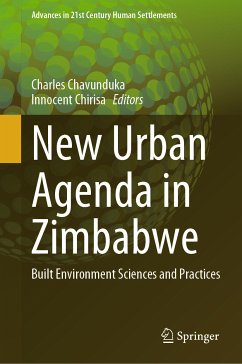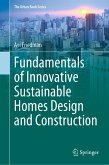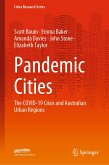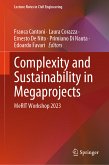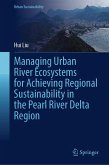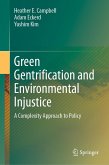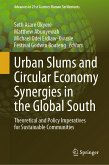¿This book presents ways of shaping the built environment sciences and practices for steering the New Urban Agenda in Zimbabwe. Attention to the built environment disciplines and practice is important because of their centrality to economic dynamism and sustainability of urban services. The reverse relationship is also true, because through provision of norms, aspirations, and guidelines; the New Urban Agenda helps in steering the built environment disciplines and practice.
The book begins by exploring theoretical and conceptual material on the built environment concept. It recognizes that sub-Saharan African countries and Zimbabwe in particular are operating in a changing environment of rapid urbanization, unemployment, and inequality. Its premise is that the built environment sciences and practice can make a contribution to addressing sustainable development challenges through the introduction of innovations in infrastructure, institutions, and processes that enhance socio-economic growth and development. The book brings together scholarship from various disciplines in the built environment and presents sector initiatives such as those relating to curricula, smart technologies, and cutting-edge innovations in steering sustainable urban development.
Dieser Download kann aus rechtlichen Gründen nur mit Rechnungsadresse in A, B, BG, CY, CZ, D, DK, EW, E, FIN, F, GR, HR, H, IRL, I, LT, L, LR, M, NL, PL, P, R, S, SLO, SK ausgeliefert werden.

